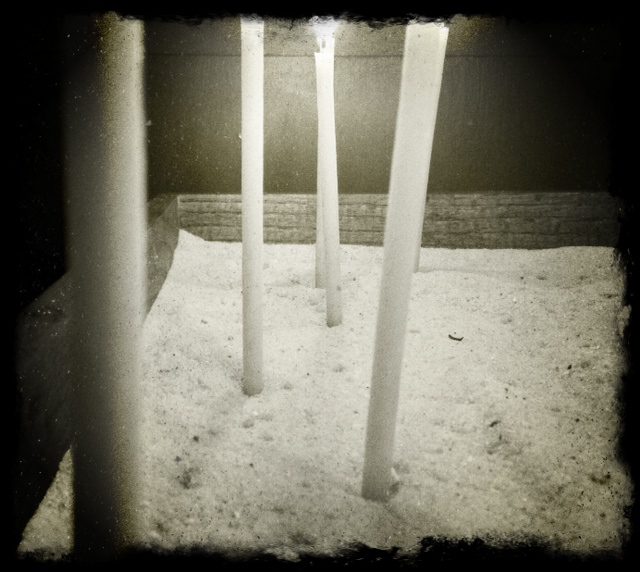The Desert, The War
So, Lent. It started tonight for Orthodox Christians, with Forgiveness Vespers, in which each of us in the congregation asks each other member, one on one, for forgiveness, then offers it to them. I remember what an impression my first Forgiveness Vespers made on me, at St. Seraphim Cathedral in Dallas. Archbishop Dmitri, who was then quite old and frail (he has since passed away), would prostrate himself in front of each of his congregation and ask forgiveness — even the little children. It’s a powerful rite.
Orthodox Lent is hard. It is about fasting — abstaining from meat, dairy, and oil is standard, though each person may work out their own fasting regimen with their pastor. Fasting is supposed to be medicine for the soul, not a rule to be followed for its own sake. It is also about praying more, both in additional church services, and privately. It is about giving alms. It is about mourning over your sins, and repenting of them.
In sum, Lent is about making holy war on yourself and all the passions within you that separate you from God. By no means is it hyperbolic to call it spiritual warfare. In my case, fasting is the hardest thing, because gluttony is my greatest sin. But if I prefer my daily bread over the Holy Spirit, what kind of Christian am I? In Lent, we must face ourselves without illusion, and overcome all that separates us from God. Dying to self is not easy, but there is no other way to unity with God than to remove all that separates us from His love. We cannot do that except by His grace, but we must practice self-denial to open ourselves to the transformative power of divine grace. We say no to ourselves so that we may more easily say yes to God.
I was thinking tonight at Vespers that our priest, as he spoke to us, was like a commander preparing his troops for battle. The stuff was about to get real. This kind of thing frightens some people about Orthodoxy, but me, I love it. The struggle is hard, but its the good kind of pain. Here is how the gaunt Forese, in Dante’s Purgatorio, explained his and his fellow penitent gluttons’ condition:
“From the eternal counsel
a power falls onto the tree and on the water
there behind us. By it am I made so thin.
“All these people who weep while they are singing
followed their appetites beyond all measure,
and here regain, in thirst and hunger, holiness.
“The fragrance coming from the fruit
and from the water sprinkled on green boughs
kindles our craving to eat and drink,
‘and not once only, circling in this space,
is our pain renewed.
I speak of pain but should say solace,
‘for the same desire leads us to the trees
that led Christ to utter Eli with such bliss
when with the blood from His own veins He made us free.”
Lent is not a payback for our sins, or an attempt to win merit. That would be futile. Rather, Lent is a time of mourning, of repentance, of disciplining our tendencies toward sin. Here is how Sufis see what they call the “inner jihad” — the holy war against the self:
For a person to be at peace, he needs to go beyond his pre-occupations with the ego-driven self and move towards the virtues. He needs to transform his ego-personality which is the hub of all his conflicts and negative attributes and shed his associated jealousy, selfishness, greed, anger, lust etc by transcending to a higher level, where the demanding ego is no longer the dominating force. This is the meaning of the internal jihad, and this process is by no means an easy one, but indeed a necessary one.
It is reported that during the early formation of Islam, when the army of Islam returned from a huge battle with the enemy, the Prophet of Islam, peace and blessing be upon him, said:
“You have returned from a smaller jihad (battle), and now it is incumbent upon you to perform your greater jihad.”
When the astonished people asked what could be a greater jihad than the one they had returned from, the Prophet, peace and blessings be upon him, said:
“The battle with ones nafs (ego-personality).”
Lent is a long trek across the desert of the self, fighting with every step. If done right, though, the victories bring cleansing joy, as Forese said. I wish all of you who are entering into battle a good struggle, and the joy of victory.

